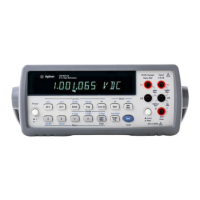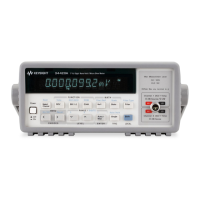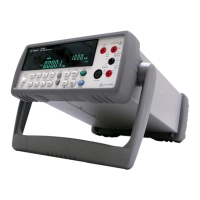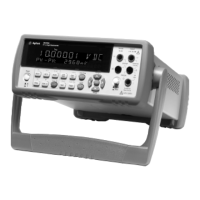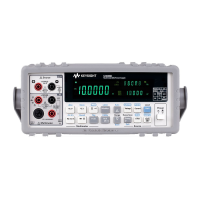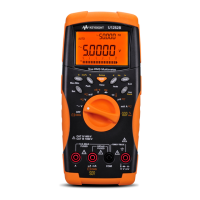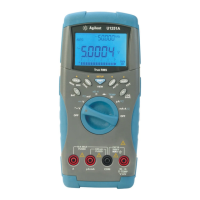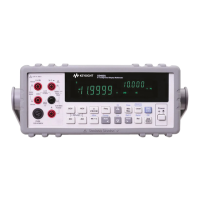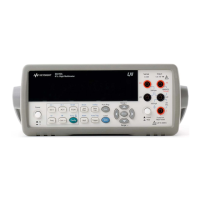Chapter 3 Disassembly/Assembly Procedures and Parts List 31
Chapter 3 Disassembly/Assembly
Procedures and Parts List
Introduction
This section contains the 3458A Covers and Printed Circuit Assemblies
Disassembly/Assembly procedures. Also included is the 3458A Parts Lists
and listings of printed circuit board assemblies.
WARNING Only personnel with knowledge of electronic circuitry and an
awareness with the hazards involved should remove and install
any printed circuit board assemblies.
Caution To prevent equipment circuit damage, always remove the ac
line power cord before removing or replacing any assembly. To
prevent electrostatic discharge (ESD) damage to ICs, always
observe anti-static techniques when assemblies are handled or
serviced.
Static Handling
Static electricity is a familiar phenomenon which, except for an occasional
shock, doesn't seem very serious. However, it has been proven that in the
electronics industry electrostatic discharge (ESD) is a major cause of
component failure. In many cases, the component damaged may not
immediately fail, causing low instrument reliability and future repairs. ESD
damage can occur at static levels below human perception. It has also been
shown that ESD can affect both passive and active devices.
The following guidelines are the minimum requirements for a static safe
service environment.
• The workbench should be equipped with a conductive table mat. The
mat should be grounded to earth ground through a 1 M ohm resistor.
The mat should be equipped with at least one swivel connector for
connecting wrist straps.
• All service and handling personnel should wear a conductive wrist strap
in contact with bare skin. This strap should be connected to the swivel
connector on the conductive table mat through a 1 M ohm resistor.
• All metal equipment at a workstation must be grounded. This includes
soldering irons, solder removers, shelving, and equipment stands.
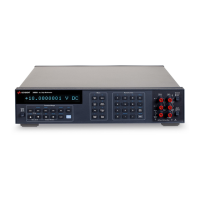
